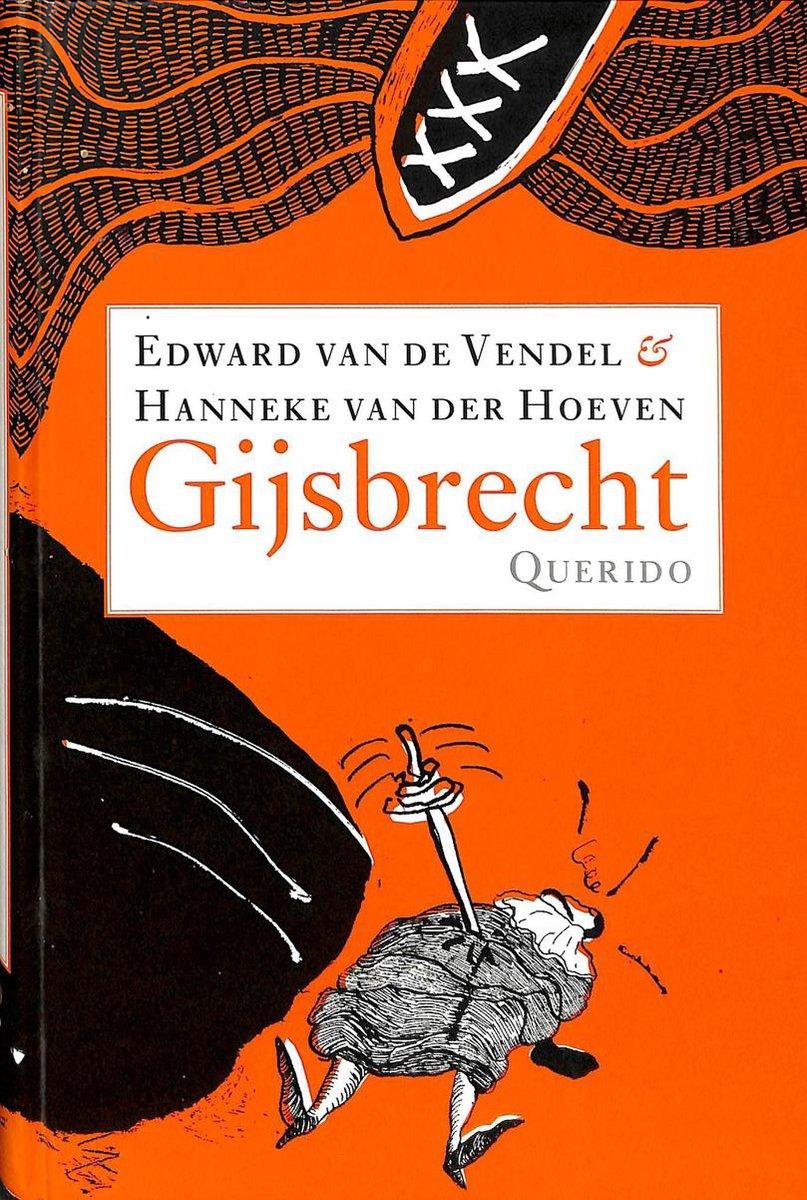Gijsbrecht
‘Gijsbrecht is a hero.’ That is the first line of Gijsbrecht. Heroes fight, as we all know. Heroes enter bravely into the fray, heroes give their lives for their cities, heroes don’t run away. But that’s not always pleasant for a hero’s wife. Gijsbrecht’s wife, Badeloch, would rather have Gijsbrecht home more often, rather than off performing heroic deeds. She finds it hard to be a hero’s wife: ‘I saw it coming – at our wedding the storm swelled and has never died down again.’ A beautiful sentence, notes a character who hears her lament. And he’s right – Edward van de Vendel does put beautiful sentences in his characters’ mouths.

This story deals with the siege of Amsterdam, which bears a striking resemblance to the siege of Troy, just as Gijsbrecht bears a striking resemblance to Virgil’s Trojan hero, Aeneas. One morning, the enemy has simply disappeared from outside the city walls. The Amsterdammers find one abandoned enemy, crying in a ditch, who tells them he no longer wishes to work for his lords and is therefore prepared to reveal that the ship moored over there, ‘The Seahorse’, is full of wood his former masters meant to use in conquering the town. And behold, the wooden-horse ship is towed into the city, the soldiers hiding in it come out in the middle of the night, the enemy returns and a terrible massacre takes place in the defenseless city.
Edward van de Vendel based his book Gijsbrecht on a play by the great seventeenth-century Dutch poet Joost van den Vondel. As we’ve seen, he could just as easily have based it on the Aeneid, the difference being that Gijsbrecht, Lord of Amsterdam, lived in the thirteenth century rather than in 800 B.C. Like Aeneas, Gijsbrecht finally does flee at the end, along with his wife and children. The story doesn’t tell us what becomes of them.
Admittedly, it doesn’t sound like a pleasant story for children. But the Iliad, the Crusades and the Old Testament all can provide subject matter for children’s books – it simply depends on how the writer tells his story. Van de Vendel does so sublimely, in rich language – muted when necessary, clear when it can be no other way – which carries the power of myth.
The story is told in compact prose, which here and there congeals almost imperceptibly into a kind of poetry. Van de Vendel writes clearly and evocatively, and is innovative in his combination of the archaic and the contemporary (…) I have never experienced the drama of Gijsbrecht as vividly as I have here.
De Groene Amsterdammer
Anyone hoping to turn a seventeenth-century tragedy about a battle from 1302 into an attractive and exciting story for today’s children has to get up pretty early in the morning. All signs are that Edward van de Vendel has met that challenge with success.
Algemeen Dagblad
-jota-chabel-(2019)(v).jpg&w=640&q=75)